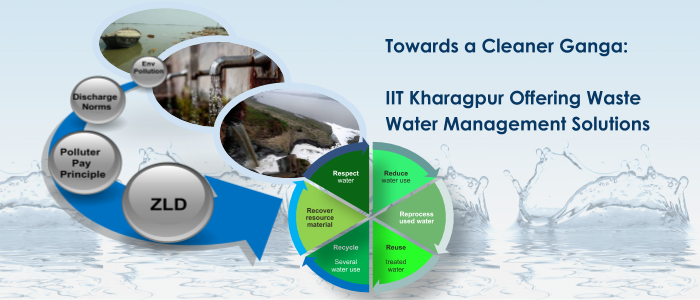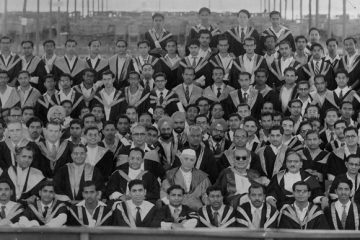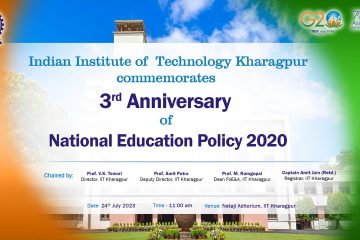
IIT Kharagpur has geared up with a large array of projects for the Ganga Utsav organized by the National Mission for Clean Ganga from November 2-4, 2020. The Institute which is working closely with the Govt. of India in this project, has taken pioneering initiatives in areas such as wastewater management, industrial pollution control and drainage into the river system, recycling of water, water audits.
Talking about the initiatives, Prof. Nirjhar Dhang, head, Dept. of Civil Engineering at IIT Kharagpur remarked, “We have extended technical support to the nearby industries in the West Bengal and Jharkhand to address challenges related to effluent treatment plants, conducting water audits, and suggesting solutions for efficient and economical wastewater treatment. We have been regularly participating in the inspection of Gross Polluting Industries along the river Ganga. Our work has led to the development of technologies that use wastewater as a resource and recover energy and other value-added products from it rather than treating it.”
Prof. A. K. Gupta, Prof. M. M. Ghangrekar, Prof. B. K. Dubey of Environmental Engineering Section and Prof. Dhurbajyoti Sen of Hydraulic and Water Resources Engineering Section are mainly involved with these type of works.
Prof. Dhang cited two innovations led by the Prof. Ghangrekar, Aditya Choubey Centre for Re-Water Research which houses an operational sewage treatment plant and the bioelectric toilet which can reuse wastewater in the toilet to generate electricity and recycle the water. Can such water treatment help reduce industrial wastewater pollution of the River Ganga?
Director Prof. Virendra K Tewari is positive that such innovations if integrated with the industrial drainage system can make way for a cleaner Ganga. He said, “We use the Ganga water in our daily lives and rituals in the truest sense of ‘Jal hi jeevan hai’, hence it is our collective responsibility to follow a certain discipline both at industry and individual levels.”
He expressed delight in how the quality of the water has improved over the past few months to the extent that aquatic animals which are usually found in the lower stretches of the river were traced upstream close to busy urban areas.
“We have the capability to keep it that way with self-discipline and right use of technology to keep the water this way and that would be the true worship of the river which is deemed holiest by the people of India.”
He further emphasized the far-reaching impact of water on human health.
“Ganga Utsav is not a festival but an awareness drive to sensitize us about the Ganga water and I thank the Govt. of India for taking this challenge from the front,” he opined.
Some of the possible initiatives which have been proposed by IIT Kharagpur towards achieving this goal include, encouraging the public to use clay and natural colors to make idols and immerse them in artificial drums, developing online sensor-based monitoring of discharges from industries, creating a centralized monitoring system of water quality of Ganga and its tributaries, drone survey of strategic points of Ganga, such as places of idol immersion, discharge points of industries or municipally treated effluents.
Further, the water experts at the Institute have also recommended the introduction of more stringent standards and extensive vigilance through automated systems. They also suggested upgradation of existing technologies by the research institutes and involvement of science and engineering colleges for monitoring the allocated stretch of river.
“While Industries should promote Zero Liquid Discharge, the real progress through product and process would have to happen at our end, i.e. technological institutions and the implementation has to be done at a social scale involving all citizens of India connected with the river system and its tributaries. The best way, I would say, is to start at our own localities through civic bodies, self-help groups and develop habits, restructure and evolve our cultural ecosystem to suit well the demands of maintaining a healthy water system,” said Prof. Tewari.
Giving a call to the industrial sector, he added, “At IIT Kharagpur we are ready with several socially and industrially scalable technologies. We are looking forward to industrial tie-ups either through commercialization or as corporate social responsibility projects.”



